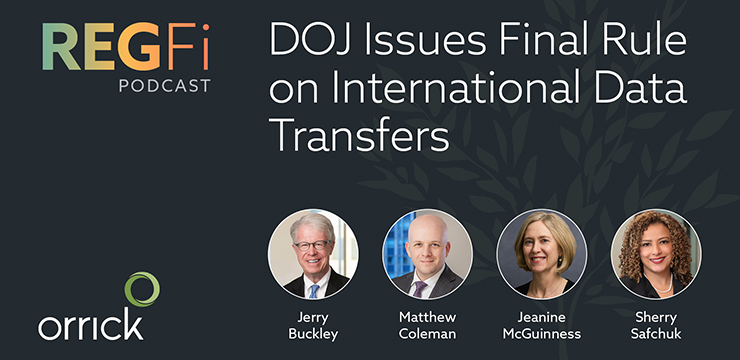SECTOR INSIGHTS
Technology & Innovation

The Download: How Defense Tech Is Evolving & Why Renewable Energy Is Booming in Texas
24 minute read | April.15.2025
Life Sciences & HealthTech

Telehealth Transformation: Innovating Mental Health Care
Life Sciences Snapshot – Q1 2025
11 minute read | February.19.2025
The Latest
Client Result
Data Centers: Intersect Power Partners with Google and TPG Rise Climate
2 minute read | December.13.2024

Client Result
Orrick Pro Bono: Restoring Dignity for a Purple Heart Veteran
2 minute read | April.07.2025

Insight
Trump Administration’s Sweeping Reciprocal Tariffs – What Companies Need to Know
by Harry Clark, Jeanine P. McGuinness, Elizabeth Zane, Maria Sergeyeva, Gregory I. Hume and Allison Lofgren Bradham
5 minute read | April.04.2025

Client Result
Orrick’s Appellate Team Produces Another Major Win for the LNG and Natural Gas Industries
1 minute read | April.01.2025

Client Result
Anthropic Raises $3.5 Billion to Advance AI Development and Expand Compute Capacity
1 minute read | March.03.2025

Client Result
Landmark Appellate Win Paves the Way for NextDecade’s $18.4 Billion Rio Grande Liquefied Natural Gas Project
2 minute read | March.19.2025

Client Result
Microsoft Signs 20-Year PPA with Constellation to Launch the Crane Clean Energy Center and Restart Three Mile Island Unit 1
2 minute read | October.01.2024

News
Orrick Remains #1 for European Venture Capital in 2024, Top 5 Globally
1 minute read | March.04.2025

News
Orrick Adds Another Restructuring Advisor – This Time in London
2 minute read | March.03.2025

News
Law360 Recognizes Tech and Infrastructure Teams as Practice Groups of the Year
2 minute read | January.21.2025

Law360 names Orrick Practice Groups of Year in Tech and Construction for groundbreaking work for AI pioneers, tech leaders & infrastructure projects.

.jpg)



